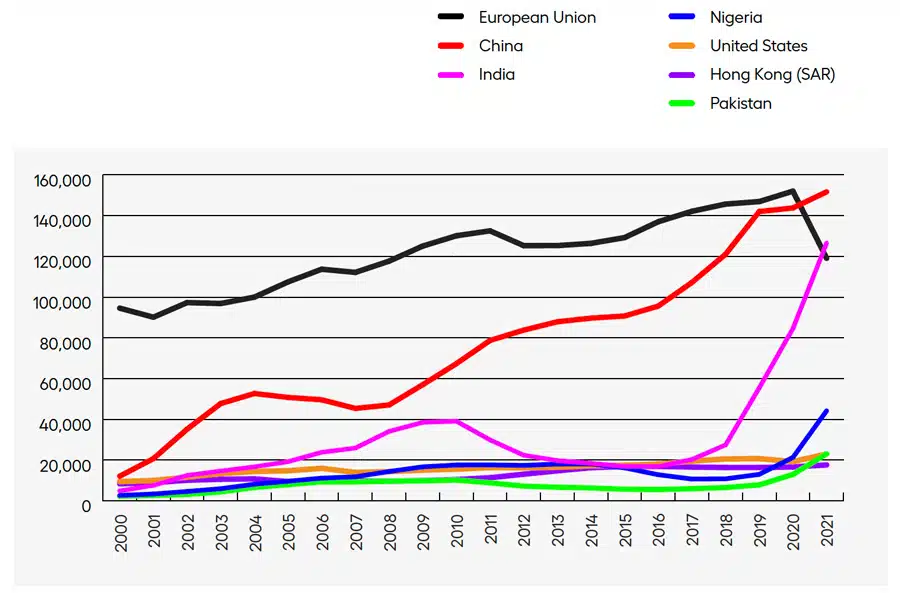Hey there! Congrats on deciding to study in the UK! Totally been there with the whole “find the perfect uni” freakout, but trust me, it’s not that scary. When I was on the hunt, I followed a few steps to land a cool course, a sweet uni, and even a scholarship (because, let’s be real, UK studies are pricey!).
Super important side note: Make sure the uni you choose is legit! There can be some sneaky not-so-great ones out there, and that can cause problems with immigration even if you have a visa. We don’t want any of that!
So, grab your metaphorical adventuring hat, and let’s find your perfect educational fit! I’ll share all my tips and tricks to make this a smooth ride.
Why UK?
| Feature | UK Universities | Other Countries (e.g., USA, Canada) |
| Academic Reputation | High | High |
| Course Variety | Wide Range | Wide Range |
| Program Length | Often 1 Year | Often 1.5-2 Years |
| Cost | Potentially Lower (shorter program) | Can vary |
| Post-Study Work Visa | Available (might be cancellled in 2024) | May or may not be available |
| Cultural Experience | Multicultural | Varies |
The UK’s stellar universities have always been a draw for international students. Numbers really boomed after they introduced a grad visa letting graduates stay and find work (you could even land a job!). It’s a shame this awesome program might get cancelled in 2024 due to some people bending the rules. Speaking of which, I was on Graduate Visa for 2 years after my studies and with that I took up employment as a Teaching Assistant at University of Glasgow itself.

Where to look for courses and universities?
This is the most basic yet crucial step in this journey. There are roughly about 166 universities in the UK and not all of them are top tier. You need to ensure that you choose a reputed university with a good track record in the field of your choice. One step that I followed was to check for both the university rankings and also the subject-wise rankings (in my case it was Micrbiology/Life sciences/Biotechnology). You can begin by selecting universities using websites like Times World ranking (https://www.timeshighereducation.com/world-university-rankings/by-subject) or QS ranking system as well.
Make a list of atleast 10 universities and rank them in order of your liking. Once you have a list, now you can start digging deeper by visiting each university websites thoroughly. The main things that I looked for were:
- Courses available for my field
- Scholarships offered for the course and their deadlines
- List of subjects in each semester (optional and compulsary)
- Faculty members
- Previous student projects
- Extra curricular activities in the university like socities etc.
Let’s face it, UK studies can be a real budget buster. Between tuition fees and living costs, it’s no small feat. I’ve even met folks who relied on student loans and ended up feeling the pinch later. Here’s the good news: scholarships can be a total game-changer!
The UK government, British Council, and even individual universities offer a surprising number of scholarships. The bummer? Many students miss out simply because they don’t know they exist. Don’t be one of them! Dedicate some serious time to digging through university websites and exploring their scholarship options and requirements. There might be the perfect fit hiding in plain sight.
While some scholarships, like the Inlaks foundation in India, might be quite specific, there are plenty out there with more flexibility. So, get researching and unlock the scholarship magic!
In 2020, my MSc in Infection Biology at the University of Glasgow cost £21,920 for tuition and £12,000 for living expenses. Luckily, I found a scholarship that covered £10,000 of the tuition! This website (University of Glasgow scholarships) helped me find it.
It’s true, Brexit has shaken things up a bit, and university fees can be even steeper now. That’s why scholarships are more important than ever. Be sure to scour university websites for scholarships – they could be your financial knight in shining armor!
What type of documents are needed?
The specific documents required for a Master’s course application in the UK from India can vary slightly depending on the university and program you opt for. A general checklist to get started is:
Essential Documents: These documents are crucial and are considered for your scholarship applications as well.
- Academic Transcripts: Official transcripts from all universities previously attended, translated into English if necessary.
- Bachelor’s Degree Certificate: Official certificate of Bachelor’s degree (or equivalent), translated into English if necessary.
- English Language Proficiency Test Scores: Scores from an accepted test like IELTS, TOEFL, PTE Academic. Minimum score requirements will vary by university and program. However, a score of 7 across different sections of IELTS is considered good for all universities.
- Statement of Purpose (SOP): A well-written essay outlining academic background, career goals, and reasons for choosing the specific program. This helps the admission committee and scholarship committee analyse your motivation. A good SOP can boost your application significantly, even for scholarship consideration.
- Letter(s) of Recommendation: One or two letters of recommendation from professors familiar with your academic work. This could be from Professors from your previous university or manager if you were employed. Make sure to get a well written letter to back your application.
Additional Documents (May be Required):
- Standardized Test Scores: Some programs, particularly in business or quantitative fields, might require scores from the GMAT or GRE.
- Work Experience Certificates: If you have relevant work experience, certificates from your employers can strengthen your application.
- Research Proposal: Certain research master’s programs might require a research proposal outlining your proposed area of study.
- Curriculum Vitae (CV) or Resume: A summary of your academic and professional qualifications.
- Passport Copy: A photocopy of your valid passport’s first and last pages. This is mostly for International students. Remember to check your passport validity beforehand. If your passport is close to expiry date, it will be handy to apply for renewal.
Phew! The hard work is done. Your application is polished and ready to go. Now’s the time to kick back, breathe easy (seriously, enjoy the moment!), and wait for the good news (which usually arrives within a few weeks, or longer if you applied for scholarships).
Follow my blog for more information about scholarships and more! Feel free drop me a message on email id.



Leave a comment